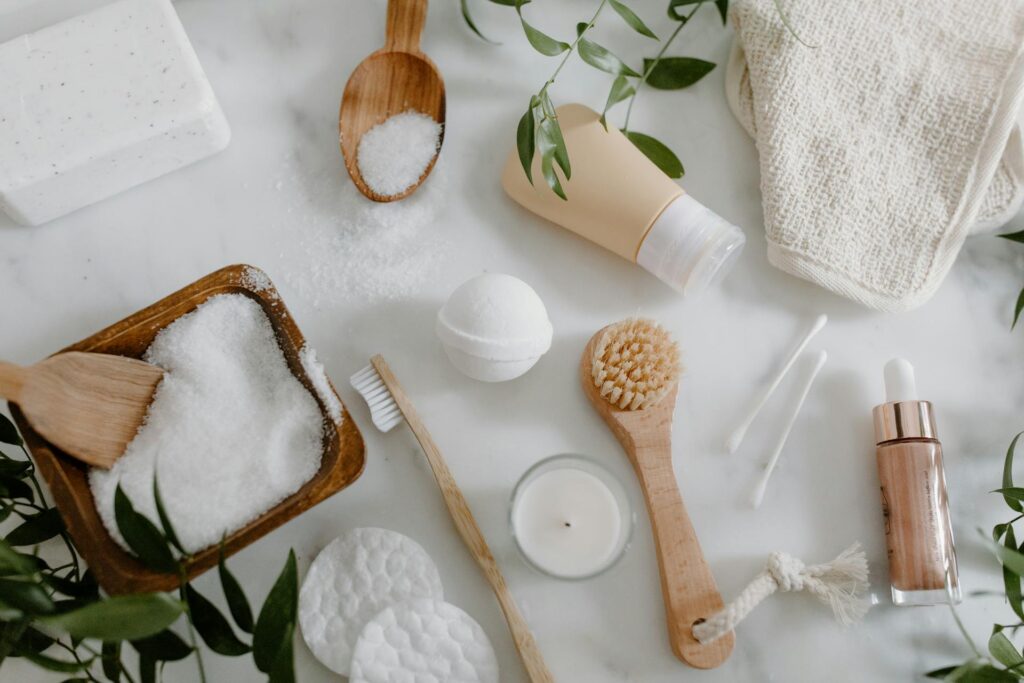- Introduction
- What are peptides?
- The Role of Collagen in Aging and Skin Health
- Natural vs. Synthetic Peptides: What’s the Difference?
- Types of Peptides: The Best Options for Your Skin
- Peptide-Infused Products: Which Ones Should You Choose?
- Why Peptides Are Essential for Skin Health
- How to Effectively Use Peptides in Your Daily Routine
- Peptides vs. Retinol: Which Is Better for Anti-Aging?
- Potential Downsides of Peptides: Allergies and Precautions
- The Takeaway: Why Peptides Deserve a Spot in Your Routine?
Introduction
Peptides have taken the skincare industry by storm, becoming a staple ingredient in products that promise to reverse aging and rejuvenate the skin. Their presence in skin care products has revolutionized beauty routines due to their remarkable benefits. You may have heard that peptides help fight aging by brightening, nourishing, and moisturizing your skin.
Are they really that effective? According to recent studies, yes. Scientific evidence suggests that frequent use of peptide serums helps prevent aging and the appearance of age spots. What are peptides and what do they do for your skin? Should you buy peptide-based skincare products and how do you choose them? We will delve into one of the most exciting topics in the beauty industry in recent years
What are peptides?
Peptides are fragments of proteins (each fragment is called a peptide ) made up of chains of amino acids, also known as the ” building blocks of the skin “, which play a key role in cellular communication and in maintaining the integrity of the skin barrier. In particular, they are responsible for producing collagen, elastin, and keratin, which have anti-aging properties.
Peptides can be found naturally in the skin or synthesized in a laboratory for use in the skincare industry. They are known for their ability to help reduce wrinkles, as they stimulate collagen production and improve skin hydration. There are many peptides, each with its function and scope of application.
The Role of Collagen in Aging and Skin Health
Most of the body’s tissues are made up of proteins. One of the most important proteins in the skin is collagen. 75 percent of the skin is collagen protein. Collagen is essentially the foundation of the skin. When we are young, our bodies produce collagen at a very high rate. This helps the skin look firm and smooth, youthful and radiant – the kind we all strive for.
Collagen is what gives the skin its structure, strength, elasticity, and smoothness. However, as we age, the collagen production rate begins to slow down. After age 20, the body produces an average of 1% less new collagen each year. Its production stops completely around age 40. Reduced collagen production leads to visible signs of aging, wrinkles, and saggy skin. This happens for several reasons. Of course, a significant reason for collagen breakdown is biological aging. Unfortunately, we cannot control or stop this process.
But just as important are external stressors, such as lifestyle and environmental factors, which can destroy collagen and are controllable. Exposure to UV radiation—whether from tanning or simply being in the sun without sunscreen—can destroy collagen. Smoking can also destroy it (another reason to quit). Not only does stress drain our vitality, but it also causes facial muscles to twitch, stretching collagen and elastin fibers and preventing them from naturally regaining their elasticity.
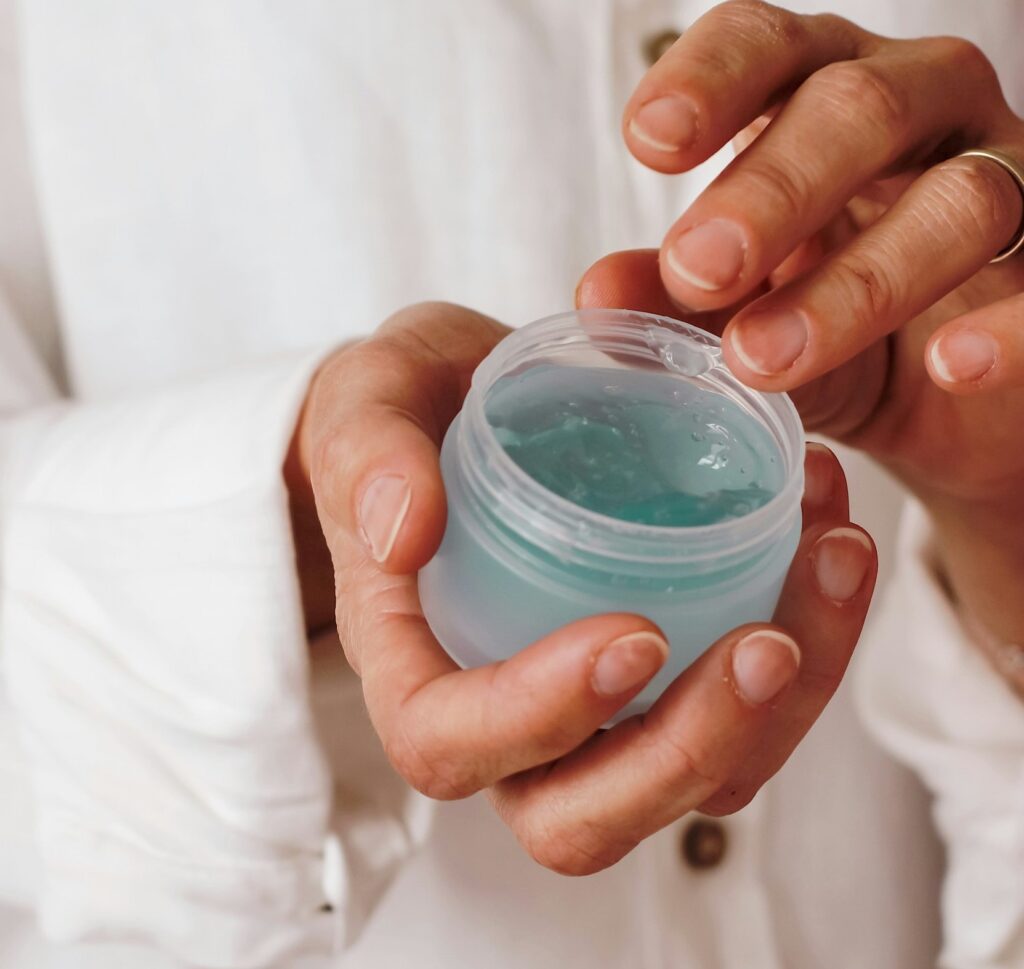
Natural vs. Synthetic Peptides: What’s the Difference?
Natural Peptides
Natural peptides are composed of sequences of amino acids and act as chemical messengers within our bodies. They send specific signals that regulate important biological functions, such as the synthesis of collagen, elastin, and keratin. They are present not only in our bodies but also throughout nature, from marine microorganisms such as plankton to plants such as moss. In addition, they are found in many foods, such as meat, shellfish, and soy, providing benefits through our diet as well.
Synthetic Peptides
On the other hand, synthetic peptides are imitations reproduced in the laboratory and used in various fields. In the medical field, they can be used to block receptors responsible for pain, inflammation, and heart disease. They also stimulate the growth of new tissues and cells and can be involved in the neutralization of toxins. In skincare, they are used to improve the appearance by reducing wrinkles, fine lines, and age spots, while also improving skin elasticity and reducing inflammation.
They also protect the skin from damage caused by UV rays, helping to prevent the signs of premature aging. In the field of biotechnology, their versatility enables the development of new materials and devices, including cutting-edge artificial tissues, personalized drugs, and innovative methods for producing energy and food.
Types of Peptides: The Best Options for Your Skin
Peptides in skincare products are found in facial moisturizers, lotions, creams, masks, and peptide serums. Since they are smaller molecules than proteins, they easily penetrate the skin. There are different types of peptides, and each one is unique in its function. While one peptide may promote collagen production, another may reduce its breakdown, while a third may reduce inflammation or stimulate skin regeneration.
You don’t have to memorize the names of every peptide, but it’s helpful to know the differences between the most common types when choosing skincare products. The list of Peptides is given below.
- Signal peptides
- Transport peptides
- Neurotransmitter-inhibiting peptides
- Enzyme-inhibiting peptides
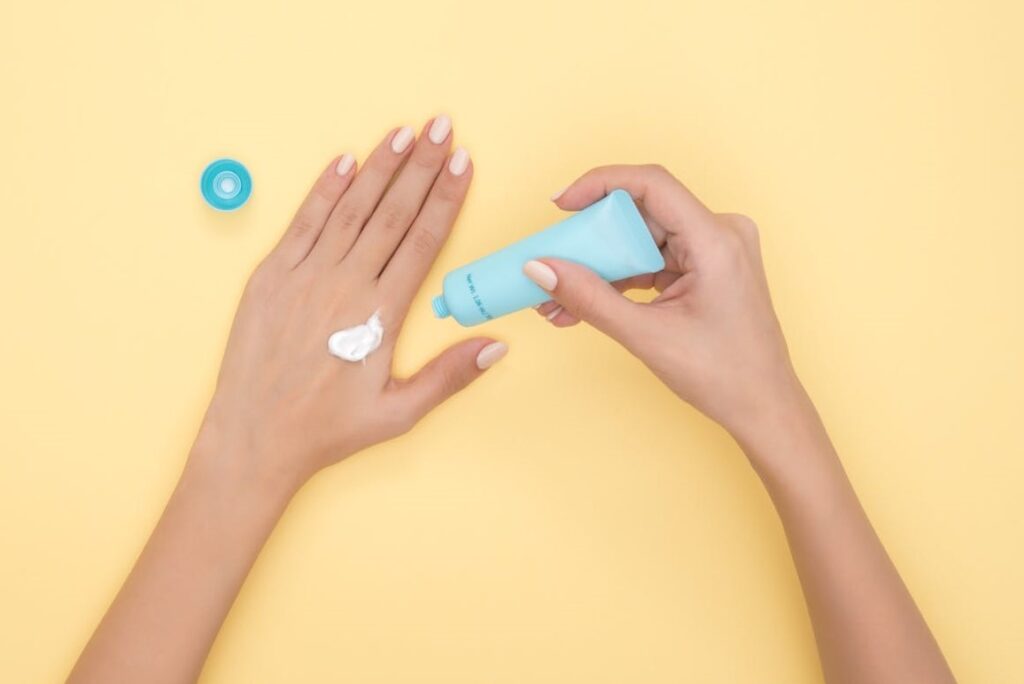
Signal Peptides: Boosting Collagen and Skin Firmness
The group of signal peptides is the most extensively researched group of peptides in cosmetics. Signal peptides play a key role in metabolic processes in the area of wound healing as well as firming and elasticity of the skin. Certain representatives of this group are said to increase the formation of collagen and other cell structures. Signal peptides restore damaged fibroblasts, promoting the active synthesis of collagen and hyaluronic acid.
Example:
- GHK-CU
- Matrixyl(Palmitoyl Pentapeptide-4)
- Trimethide MEDI-1
- Palmitoyl Tripeptide-5
- Palmitoyl Dipeptide-6
Transport Peptides: Delivering Essential Nutrients to Your Skin
Have you ever read the term “copper peptide” on a skincare product? In this case, it is usually a peptide from the group of transport peptides. Among other things, they are responsible for the release and stabilization of copper.
This is important because copper – the third most common trace element in our body – is essential for the formation of collagen. They increase antioxidant protection and increase the synthesis of collagen and elastin – valuable proteins for beauty and youth.
Transport peptides can introduce copper into these processes and thus support the formation of firming skin structures.
Example:
- Acetyl Hexapeptide-37
- Copper Tripeptide-1
- Acetyl Tetrapeptide-3
- Argireline(Acetyl Hexapeptide-8)
- Acetyl Dipeptide-1
Neurotransmitter-Inhibiting Peptides: The Botox Alternative?
Neurotransmitter-inhibiting peptides are particularly exciting for skincare. They are primarily intended to improve the signs of facial aging. This class of peptides is intended to reduce signal transmission to muscle cells and is thus similar to Botox. They imitate the effect of Botox, having a relaxing effect on the facial muscles, against which existing wrinkles become less noticeable.
Example:
- Acetyl hexapeptide-3
- Acetyl hexapeptide-8
- GHK-CU Copper Peptide
- Copper Lysinate/Prolinate
Enzyme-Inhibiting Peptides: Blocking the Signs of Aging
Inhibit certain substances that are responsible for the breakdown of cell structures such as collagen or elastin. If these substances are blocked, the breakdown of collagen or elastin is slowed down and the two structural components of the skin remain intact for longer.
Example:
- Acetylarginyltryptophyl Diphenylglycine
- Hexanoyl Dipeptide-3 Norleucine Acetate
- Dipeptide Diaminobutyroyl Benzylamide Diacetate
- Palmitoyl Tetrapeptide-7
- Trifluoroacetyl Tripeptide-2

Peptide-Infused Products: Which Ones Should You Choose?
When it comes to skin and facial care with peptides, you now have a large selection of different care products, such as:
- Peptide creams
- Serums with peptides
- Ampoules with peptides
- Body lotions
Peptides Cream
Face creams with peptides are mostly used for anti-aging purposes to minimize skin aging and plump up the skin. Face creams with peptides also give your face a beautiful glow and firm your skin. Rich peptide creams keep your facial skin moist for a long time and are therefore ideal for dry skin areas.
Serums with Peptides
If you want to care for your skin particularly intensively with peptides, serums are a good option. These highly concentrated products have a particularly high density of peptides. This makes the care particularly rich and intensive. This means that your skin can be well supplied with moisture and collagen. Since this care is particularly strong for your skin, it is sufficient to use the serum with peptides every two days so as not to over-care for your skin.
Ampoules with Peptides
If you only want to test the intensive effect of peptides temporarily, ampoules with peptides are ideal. These contain an equally high dose of peptides but are usually smaller than a serum and therefore ideal for testing. These ampoules often also contain a sun protection factor, so you can ideally use this care product in the morning.
Body lotion with Peptides
To care for your entire body, we recommend body creams, body lotions, or body butter to provide your entire body with peptides. We often have dry areas of the body, especially on the knees or arms, that require intensive moisturizing. Thanks to the peptides, a peptide body lotion will provide your skin with ideal moisture that also lasts for a particularly long time.
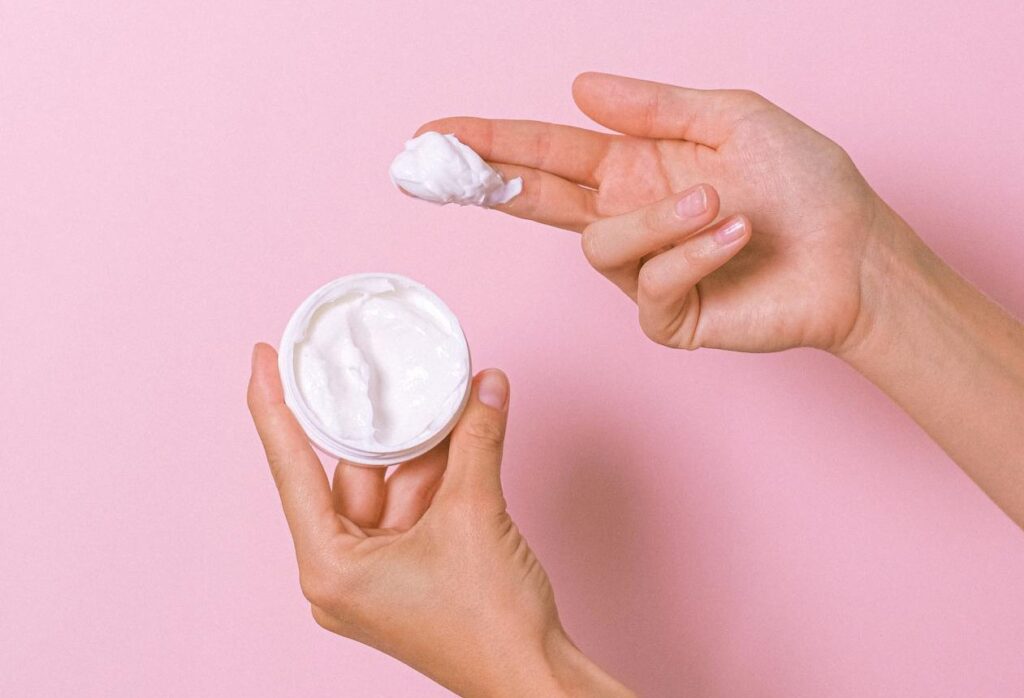
Why Peptides Are Essential for Skin Health
The benefits of peptides for the skin are numerous, precisely because they stimulate the production of collagen, keratin, and elastin to:
- Promotes intensive production of elastin and collagen.
- Reducing the number and severity of wrinkles.
- Deeply moisturize and tighten the skin, positively affecting its tone.
- They have an antioxidant effect, slowing down aging.
- They restore blood supply, providing tissue nutrition and cell regeneration.
- Regular use of peptide-containing products improves complexion, reduces spider veins, and lightens pigment spots.
- Provide deep hydration by retaining water within the epidermis.
- Improve the appearance of dark spots and discolorations.
- Relieve sunlight-induced skin damage and hyperpigmentation.
- Construction and conversion of materials.
- Control and regulate metabolism.
- Form structures of cells, organs, bones, or even our skin.
How to Effectively Use Peptides in Your Daily Routine
Peptides are an important addition to cosmetics. What makes them special is their ability to easily penetrate and be absorbed by the skin when applied topically. Once absorbed, our body uses them effectively to give the skin a toned and compact appearance.
Their presence in skincare products is particularly beneficial, and we can find peptides in various treatments, from moisturizers to serums, from night treatments to masks. To achieve the best results, it is essential to be consistent in using these products and adapt your skincare routine to the specific needs of your skin. For mature skin, these products may work best when used in a layered fashion, integrating them into an anti-aging routine.
Using peptides regularly will allow you to postpone expensive lifting procedures and surgical interventions. It is extremely important to build your principles of care, in which the active components will manifest themselves, interacting with each other, to the maximum. Do not forget to thoroughly cleanse and tone the skin before applying peptide care. You also need to be patient, since peptide cosmetics cannot give quick results – the first visible results become noticeable only after 3 months of daily use.
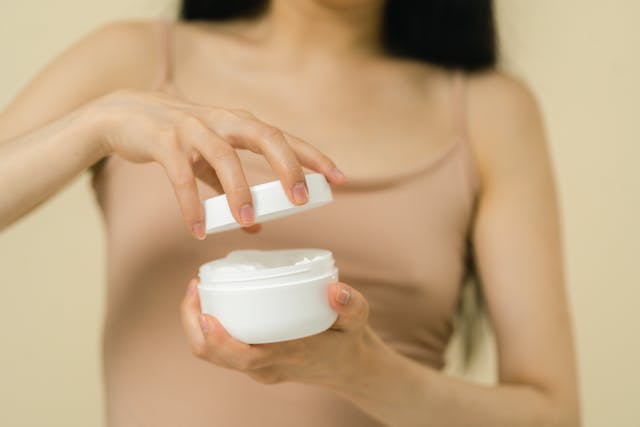
Peptides vs. Retinol: Which Is Better for Anti-Aging?
Peptides and retinol have similar properties. Both prevent aging and strengthen the skin barrier.
- Retinol is known for its effectiveness, but it can cause dry skin if the skin type is sensitive. In addition, there are restrictions on the combination of products with retinol and other popular beauty components.
- Peptides do not dry out the skin, suitable for sensitive and dry skin types. They combine well with other products, especially with vitamin C, niacinamide, and hyaluronic acid. If you are already using retinol, you can alternate it with peptide products in courses.
Potential Downsides of Peptides: Allergies and Precautions
When caring for your skin with peptides, you don’t have to worry about side effects or unwanted effects. Of course, you should pay attention to how your skin tolerates the ingredients. As soon as you notice an allergy or other reaction of your skin to products containing peptides, you should stop the treatment. Of course, other ingredients in the product could be behind this, as peptides are generally harmless and easily tolerated. There are a few precautions to consider:
- Allergic reactions: In rare cases, some people may develop allergic reactions to peptides. If you notice redness, itching, or swelling after applying a peptide product, discontinue use and consult a dermatologist.
- Interaction with other ingredients: Some peptides may interact with other ingredients in skin care products, such as exfoliating acids and retinol. To avoid irritation, follow the directions on the product label and consult a dermatologist if necessary.
The Takeaway: Why Peptides Deserve a Spot in Your Routine?
Peptides are certainly a game-changer in the skincare industry, due to their many benefits and ability to work at a cellular level to improve the health and appearance of our skin. Integrating products with peptides into your skincare routine can make a noticeable difference in your skin’s overall health and appearance.
In summary, peptides are an optimistic and valuable ingredient in skincare. We expect their use in the cosmetic industry to continue evolving and expanding. However, it is important to remember that peptides are not the only important ingredient in skincare and that combining peptides with other effective ingredients is essential for optimal results.


